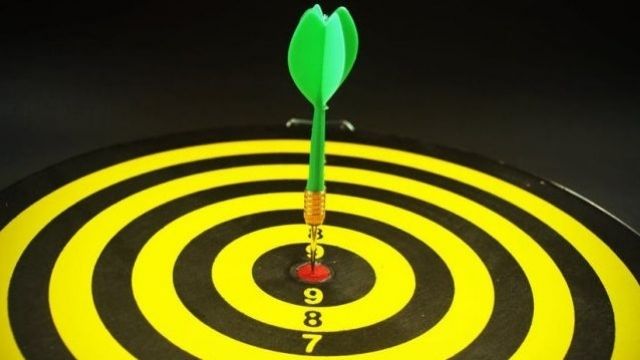Advertiser Disclosure
How to Consolidate Credit Card Debt
Updated On September 30, 2024
Editorial Note: This content is based solely on the author's opinions and is not provided, approved, endorsed or reviewed by any financial institution or partner.

If you're wondering how to consolidate credit card debt, you can learn how to save money and get out of debt faster. Credit card consolidation is one of the smartest financial strategies to organize and manage your credit card debt, while saving money. Today, credit card debt is a $1 trillion issue. So, if you have credit card debt, you’re not alone.
Credit card consolidation is the process of combining all your credit card debt into a single loan with a lower, fixed interest rate that simplifies the credit card debt repayment process and saves you money. "How do I consolidate credit card debt?" is a popular question that we are asked at Mentor.
If you want to consolidate credit card debt, a personal loan – which is also known as a credit card consolidation loan – can lower your interest rate and lower your monthly payment.
What Is A Credit Card Loan?
A credit card loan is an unsecured loan typically from $1,000 – $100,000 with a fixed interest rate that is used to consolidate credit card debt and lower your current interest rate. A credit card loan is a short-term loan that is typically repaid in 3-5 years, and offers a monthly repayment feature that includes both principal and interest. Some lenders offer repayment options from 2-7 years to provide more flexibility for repayment.
How Is A Credit Card Loan Different From Other Types of Loans?
A credit card loan is different from other types of loans in several ways.
First, a credit card loan is an unsecured loan. An unsecured loan means that there is no collateral attached to a credit card loan. For example, if you borrow a mortgage, your home becomes the collateral for your mortgage. If you default on your mortgage, your lender will then own your home.
With a credit card loan, there is no underlying collateral if you want to consolidate credit card debt. When a loan has no collateral, it means that the loan is an unsecured loan. Since the lender assumes more risk with an unsecured loan, the interest rate on a credit card loan is higher than the interest rate on a mortgage.
Second, a credit card loan typically has a fixed interest rate, which means that your interest will never change. For example, if the Federal Reserve raises interest rates, a fixed credit card loan will not be impacted and you will continue to make the same monthly payment and interest rates. This makes credit card loans more predictable.
When you compare a credit card loan to a credit card, you can see that a credit card has variable interest rate. A variable interest rate means that you credit card payment can increase when interest rates rise, which can cost you more money. When you have a variable interest rate, your monthly payments may be unpredictable, and ultimately may be more expensive if interest rates continue to rise.
How A Credit Card Loan Helps You Save Interest When You Consolidate Credit Card Debt
If you want to consolidate credit card debt, a credit card loan helps you cut the interest rate on your existing credit card debt.
A credit card loan combines all your existing credit card debt into a single credit card loan with one monthly payment. When you consolidate credit card debt, the resulting interest rate is equal to the weighted average of the interest rates of your existing credit card debt.
The good news is that interest rates on credit card loans are often much lower than the interest rates on credit cards, which typically range from 10-20%.
This means that you can use a credit card loan to lower your interest rate and lower your monthly payment, which can help you consolidate credit card debt and pay off your debt more quickly.
When Should You Use A Credit Card Loan To Consolidate Credit Card Debt?
The best part about a credit card loan is that you can use it at your discretion on the financial decisions most important to you.
Unlike a student loan or mortgage, which must be spent on school or a home, you decide how and when to spend your credit card loan.
Credit card debt consolidation is your intended use to consolidate credit card debt, but you do have the discretion to use your credit card loan for other purposes.
Should You Use A Credit Card Loan To Consolidate Credit Cards?
If you have credit card debt and want to lower your monthly payment and interest rate, then you should consider a credit card loan to consolidate credit card debt.
This credit card consolidation calculator can show you how much money you can save when you consolidate credit car debt.
Here’s a good rule to remember: if you can get a credit card consolidation loan or personal loan at a lower interest rate than the interest rate on your credit card, then it may be advantageous to consolidate credit card debt. Conversely, if the interest rate you receive is higher than the interest rate on your credit card debt, you may want to consider other options.
Bottom line: compare the two interest rates and determine which one is lower. Remember, a personal loan or credit card consolidation loan typically has a fixed interest rate, so you may save more money compared to a variable interest rate if interest rates rise.
You can learn your new rate online for free within minutes.
Today, the average credit card interest rate is 16.5%. For example, if you have $10,000 of credit card debt at 14% interest and can obtain a credit card loan at 6% interest, you could potentially cut your interest payments by more than 50%.



